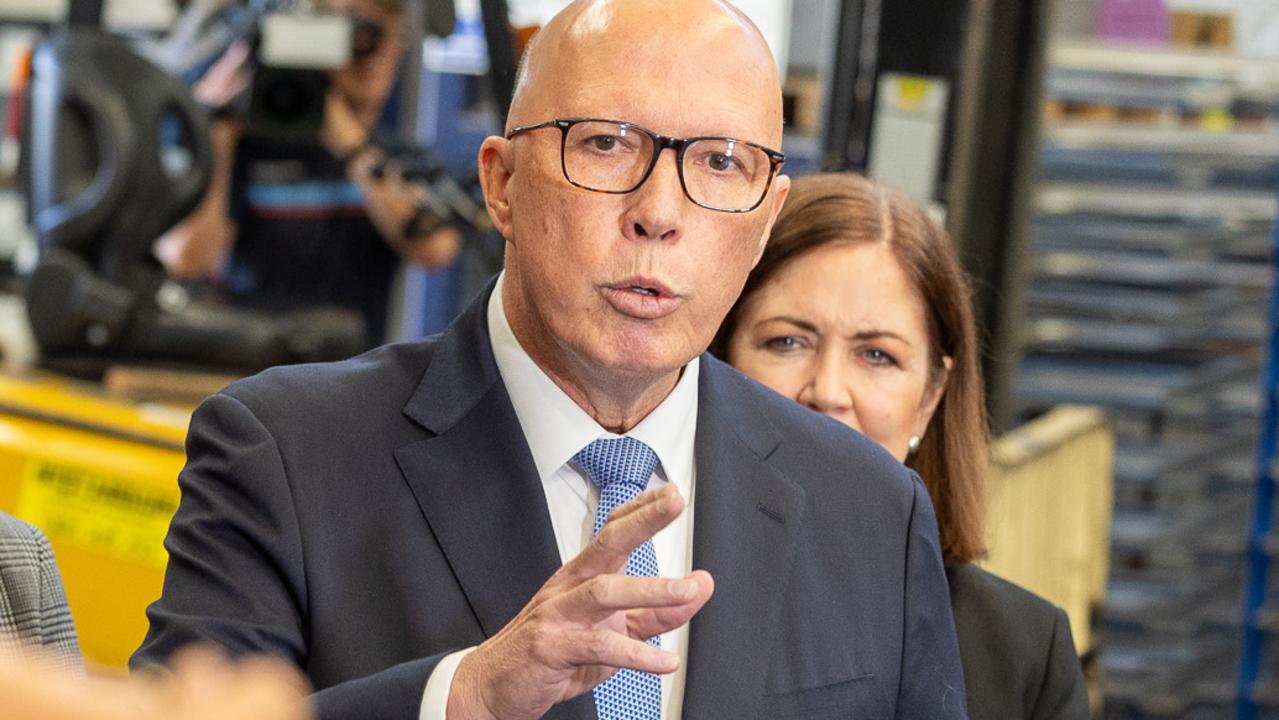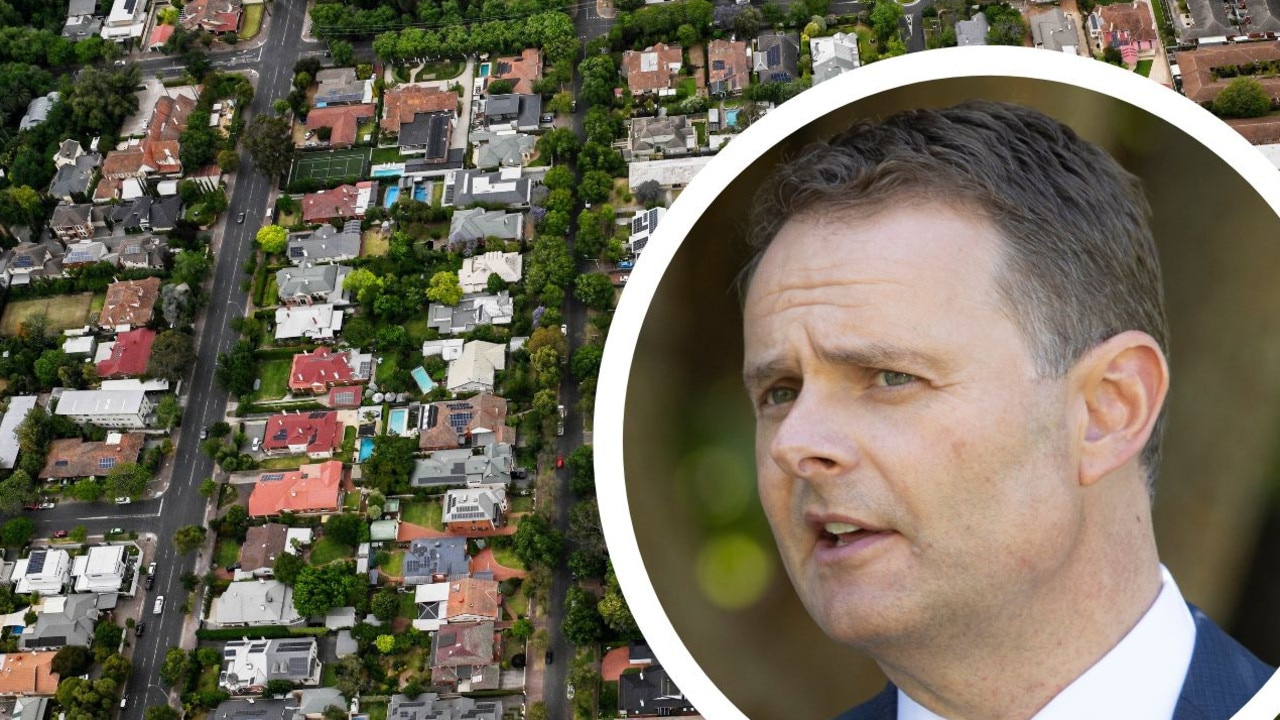“I wanted to give him a better life … in my mind, my baby would be better off if I wasn’t in the picture’
Becoming a mum is one of life’s greatest joys - or it should be. It’s estimated postnatal depression robs this natural pleasure from 10 per cent of mums. Here two share their harrowing stories.
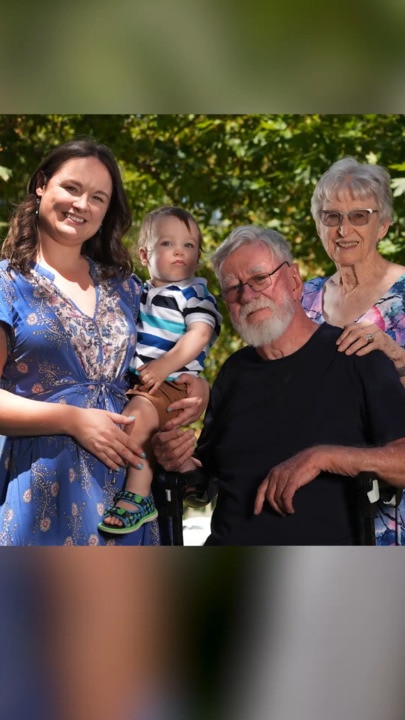
SA News
Don't miss out on the headlines from SA News. Followed categories will be added to My News.
The joy doting mum Kim Cottell gets from interacting with her adorable toddler son is palpable – she beams proudly as he gurgles with delight while playing in an Adelaide park.
But the stirring scene very nearly didn’t happen with the 37-year-old mother, by her own harrowing admission, almost succumbing to postnatal depression in the most shocking of ways.
“I was in a really dark place (after the birth of my baby) and I did have suicidal thoughts … it was quite a fraught time because it got to the point it felt a bit hopeless, that nothing was going to help,” the qualified medical scientist and charity worker says.
“In my darkest moments I always loved (my baby) … all the negative thoughts and feelings were very much centred on me and my failures, it was around me thinking I was going to be the worst mother in the world … like, how horrible of me to do that to this beautiful baby boy because he was, you know, so perfect.
“I wanted to give him a better life … in my mind, he would be better off if I wasn’t in the picture, I would be removing myself out of love for him.”
The unimaginable, despairing time she describes in raw honesty followed the birth of her first son, five years older than the fun-loving youngster who holds centrestage in the sunshine at today’s photo shoot.
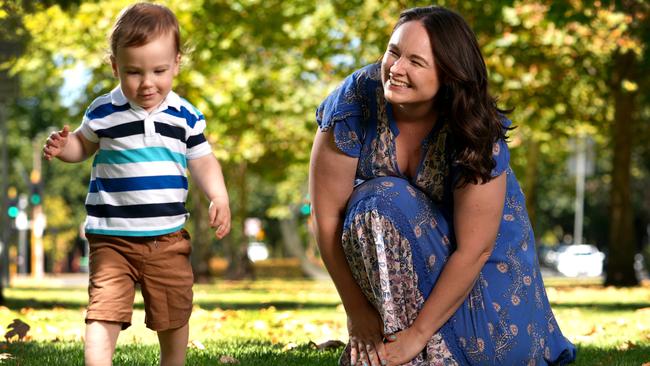
Cuddling her youngest child, she is beyond thankful she survived the bleak period, intensely mindful of “not wanting my loved ones to live with the burden that I had taken my own life”.
“I just find it so terrifying looking back … I would’ve missed out on so much, I now have so much joy in my life,” she says as her voice fills with emotion.
The Cottell’s firstborn – they have requested their children’s names not be published – was born prematurely at 29 weeks, spending the first 10 weeks of his life in hospital.
“When we brought him home the elation of his birth had worn off a little and I was feeling a little nervous without having the doctors and nurses around to constantly monitor him but it wasn’t anything too serious,” she recalls.
“Then I just sort of became a bit down … my mood was quite low and I wasn’t sleeping at all in the beginning which didn’t help.”
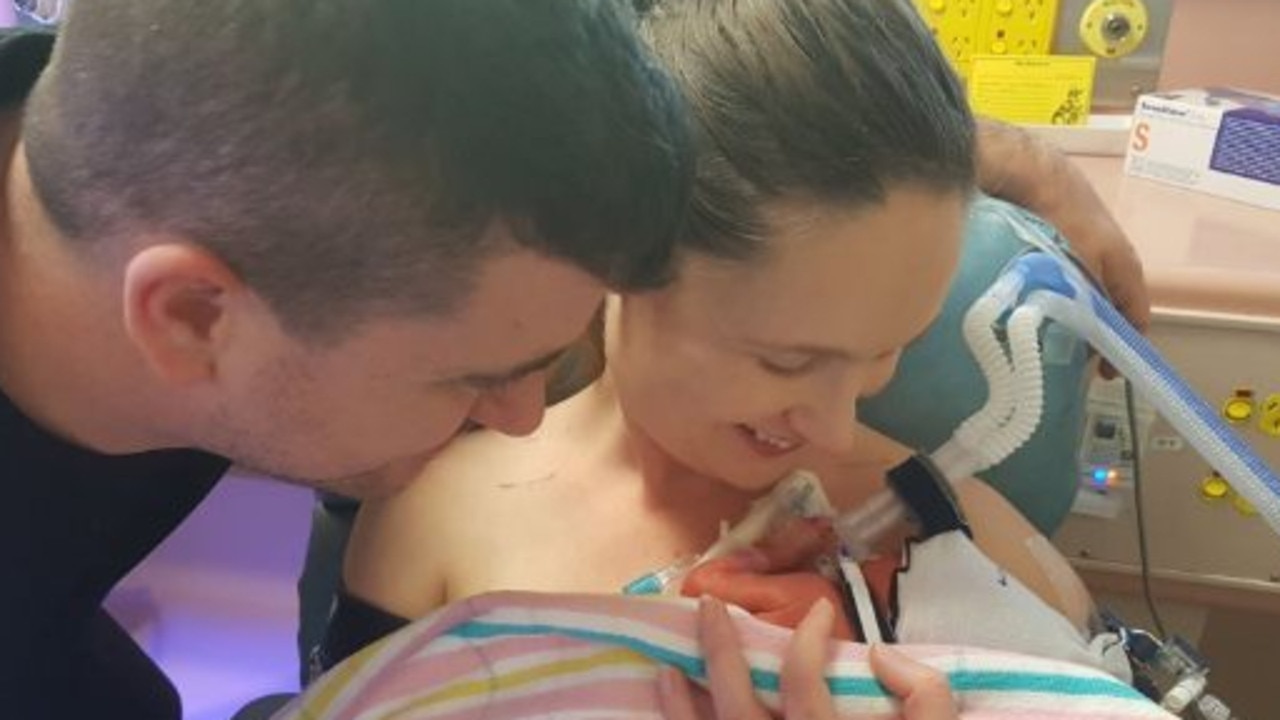
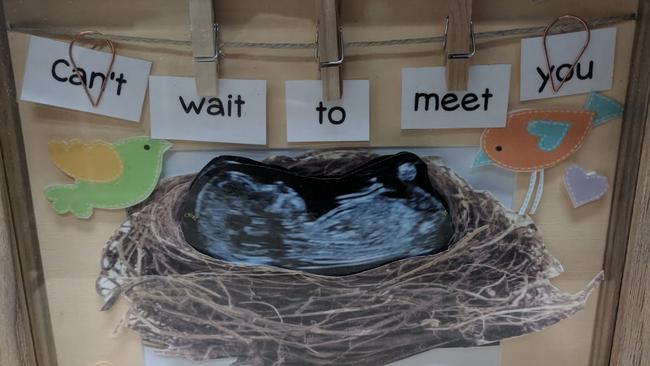
Things worsened as her husband’s scheduled return-to-work date neared.
“I declined into a bit of a dark time … into this really significant depression unlike anything I had experienced in the past,” she says, crediting her loving husband, Dennis, and family with ensuring she got the help she needed which included returning to hospital, this time as an inpatient in a specialist mental health unit for mums with very young children.
Later it was the team at Acorn – a unique, 15-week program in inner Adelaide funded by the not-for-profit Hopscotch Foundation that helps mums with mental health difficulties connect with their babies through “dance play” and other activities – that allowed her to fulfil her dream as a hands-on, devoted mum.
Cottell, who had experienced some mental health issues ahead of her first pregnancy and was diagnosed with bipolar during treatment for her postnatal depression, says the decision to try for a second child was not one she or her husband took lightly.
“We really wanted another child, we really wanted to give (our son) a sibling but we did get to a place as a family where we really wanted to be – things were going so well,” she says.
“The ripple effect of postnatal depression is huge … it impacts not only the new mum but bub and the entire family – it can create all kinds of other issues. So, it was really hard to do something that was potentially going to destabilise all of that … and that might impact on our five-year-old.
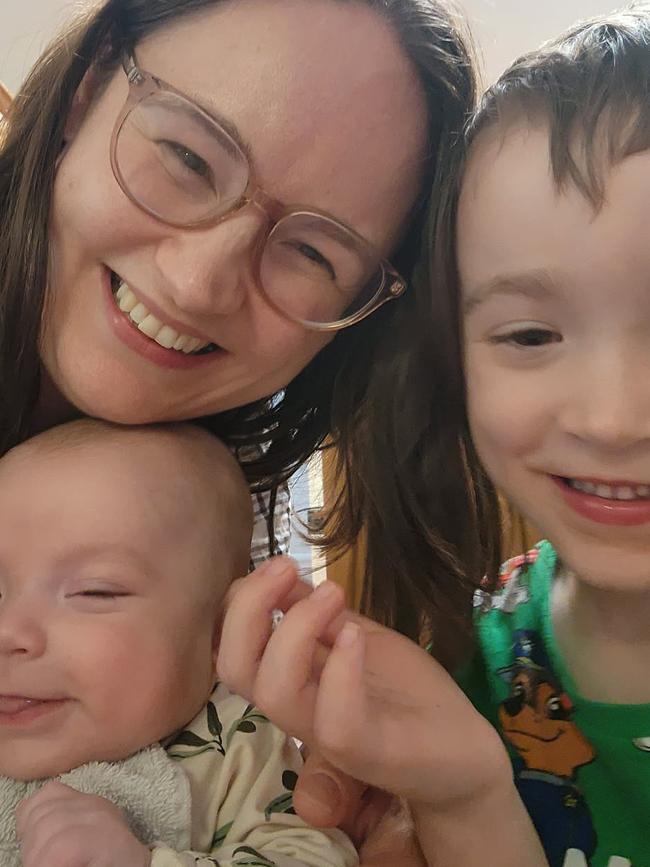
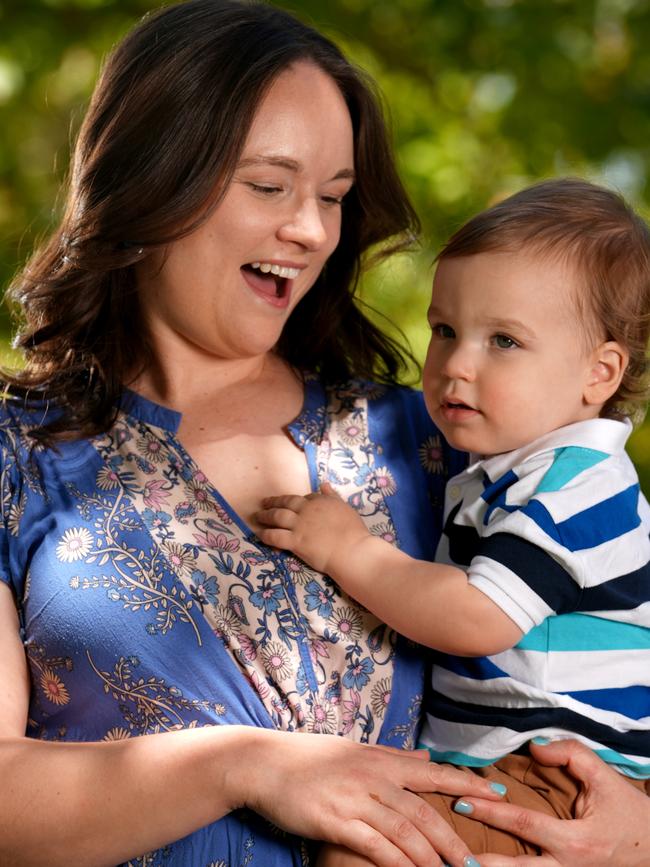
“Ultimately, we decided this time we could be going in with eyes wide open and knowing what to look for if things did start going sideways, to get on top of it straight away.” She also took comfort in knowing the Acorn program existed.
“In regular mothers’ groups there can be this ideal of the ‘perfect mum’ where people want to put their best self out there … you don’t necessarily get that really honest connection which allows you to realise you’re not alone in going through what you are,” she says.
‘You can’t predict postnatal depression’
It is something gently-spoken Candita Smith* can relate to well.
It’s been more than a decade since she, in her own words, “shut down” after the birth of her first child, an adored baby she and her husband very much wanted and had planned for.
The memory of that painful time continues to stir emotions, making it difficult for the now mum-of-two to speak about it without becoming teary-eyed.
She was hospitalised for postnatal depression when her precious baby was just four weeks old.
“Sort of straight after I gave birth to my daughter, there was this type of separation … (it hit) almost immediately and I remember this strange feeling walking out the doors of the hospital,” she says.
“It is really difficult to describe, obviously, there was joy in having this baby – when I first met her I was going, ‘Wow, I made this, we made this – and she was so beautiful and so perfect.’
“But I remember looking at the baby and saying, ‘You know, I love that baby, but I don’t feel like I love that baby’ … you can’t predict (postnatal depression), it just happens. I felt incredibly lonely … when you have a baby you have to function totally differently and I didn’t have the manual, I didn’t have the framework.”
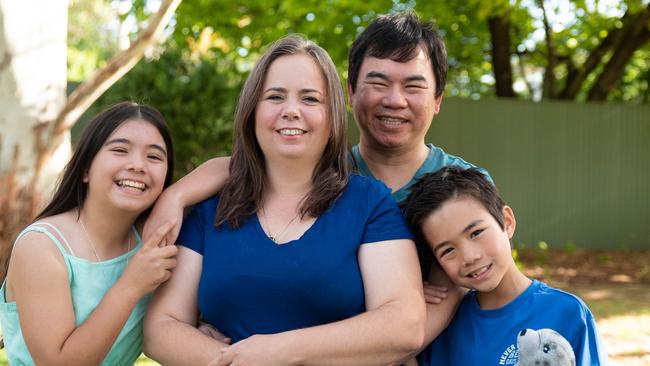
Things spun out of control when her husband returned to work.
“I couldn’t stop (the) downward spiral of just feeling out of control and there were times where I just had to put her down because there were these intrusive thoughts of, you know, harming the baby and that was just a devastating thought,” she says.
“It was an emotional minefield on a moment-to-moment basis … it was gruelling and punishing.” It was Candita’s mum who first sensed her daughter was experiencing more than “baby blues”, guiding her to the support she needed which also included time in Helen Mayo House and later the Acorn program.
“It was embracing the care and love shown to myself and my baby (here) … the smiles and just the genuine love for mothers and infants that broke down those barriers where I could relax and let go and say, ‘This is a safe space’,” she says.
She bonded with her bub and gained the confidence to not only navigate but thrive in motherhood – and later expand her family, now a loving mum to two kids aged 12 and 9.
“Initially (when we considered having a second child), there was that lingering fear of, you know, ‘What if I go back into that dark hole?’ … but it was really helpful to know there was (this) bridge (to) re-cement the things that I had learnt to propel me forward as a mother,” she says, adding for her family the significant role of the team of facilitators, volunteers and other mums at Acorn program can’t be overstated.
“The Hopwoods, through their love and this program, show there is a way to go through this together – we’re not alone and we’re not isolated,” she says. “I feel grief that there are other mothers who are going through the same thing as I did … it doesn’t have to be like that.”
* Surname has been changed
More Coverage
Originally published as “I wanted to give him a better life … in my mind, my baby would be better off if I wasn’t in the picture’





